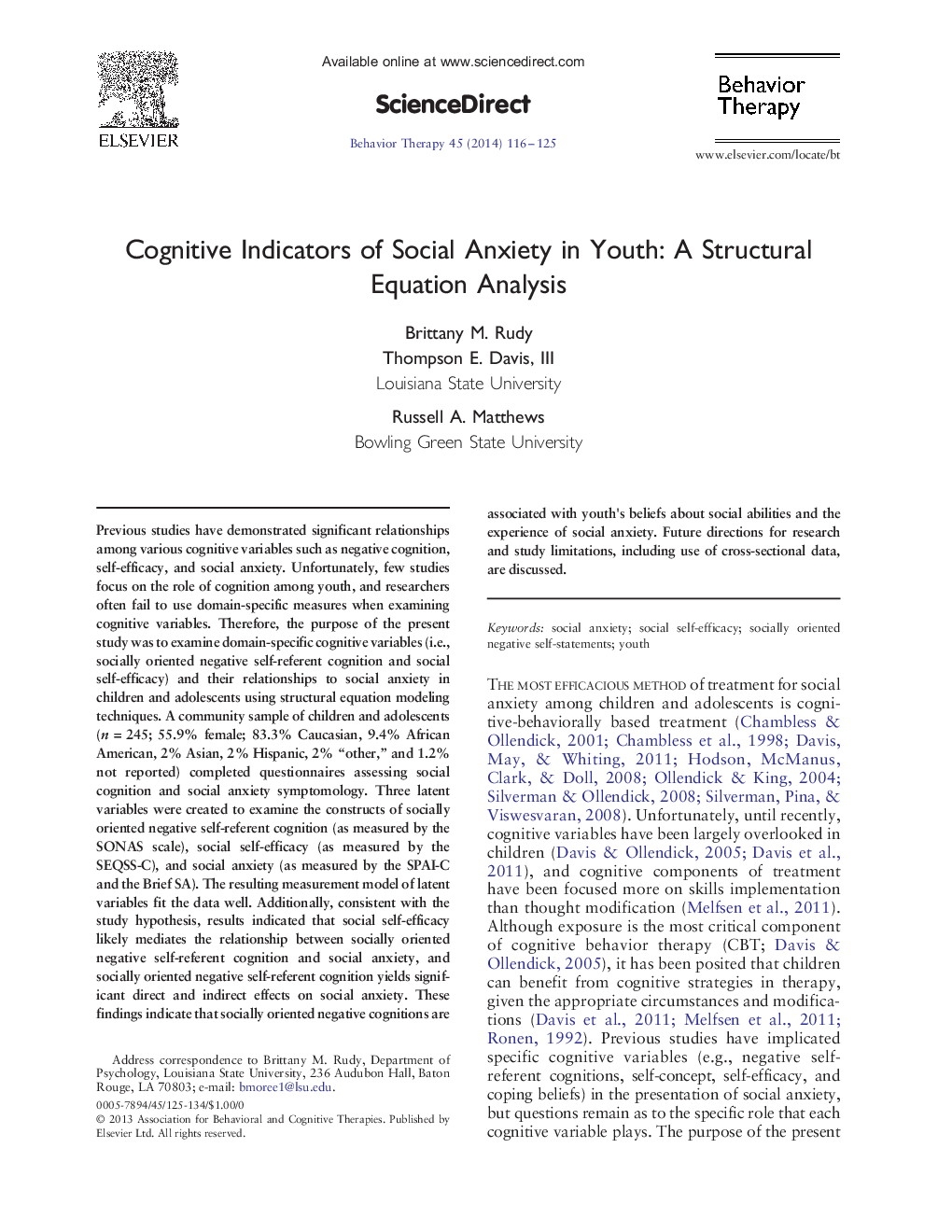| کد مقاله | کد نشریه | سال انتشار | مقاله انگلیسی | نسخه تمام متن |
|---|---|---|---|---|
| 901247 | 915854 | 2014 | 10 صفحه PDF | دانلود رایگان |
• Socially-oriented negative cognition, social self-efficacy, and social anxiety are examined.
• A relationship between socially-oriented negative cognition and social self-efficacy was established.
• An alternative SEM model was significant.
• Social self-efficacy partially mediated the relationship between social negative cognition and social anxiety.
• Socially-oriented negative cognition yielded direct and indirect effects on social anxiety.
Previous studies have demonstrated significant relationships among various cognitive variables such as negative cognition, self-efficacy, and social anxiety. Unfortunately, few studies focus on the role of cognition among youth, and researchers often fail to use domain-specific measures when examining cognitive variables. Therefore, the purpose of the present study was to examine domain-specific cognitive variables (i.e., socially oriented negative self-referent cognition and social self-efficacy) and their relationships to social anxiety in children and adolescents using structural equation modeling techniques. A community sample of children and adolescents (n = 245; 55.9% female; 83.3% Caucasian, 9.4% African American, 2% Asian, 2% Hispanic, 2% “other,” and 1.2% not reported) completed questionnaires assessing social cognition and social anxiety symptomology. Three latent variables were created to examine the constructs of socially oriented negative self-referent cognition (as measured by the SONAS scale), social self-efficacy (as measured by the SEQSS-C), and social anxiety (as measured by the SPAI-C and the Brief SA). The resulting measurement model of latent variables fit the data well. Additionally, consistent with the study hypothesis, results indicated that social self-efficacy likely mediates the relationship between socially oriented negative self-referent cognition and social anxiety, and socially oriented negative self-referent cognition yields significant direct and indirect effects on social anxiety. These findings indicate that socially oriented negative cognitions are associated with youth's beliefs about social abilities and the experience of social anxiety. Future directions for research and study limitations, including use of cross-sectional data, are discussed.
Journal: Behavior Therapy - Volume 45, Issue 1, January 2014, Pages 116–125
